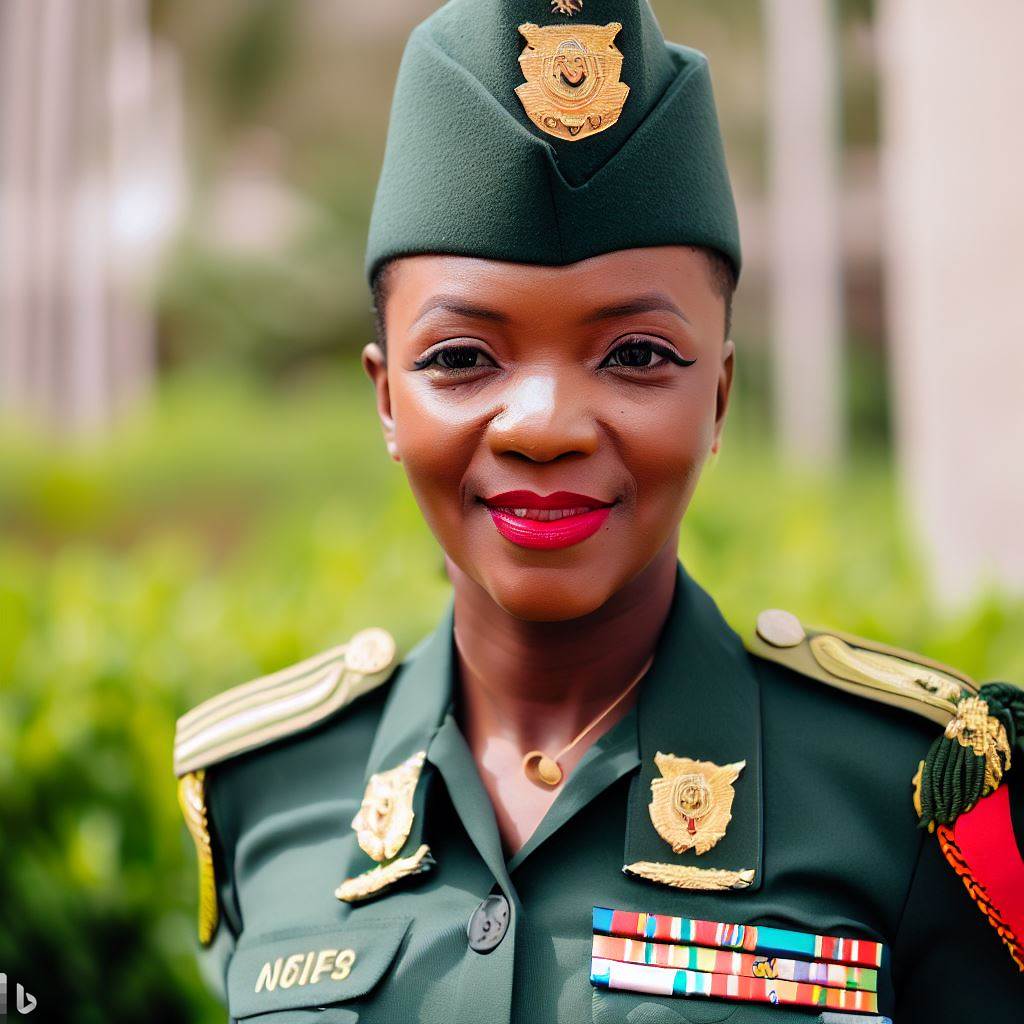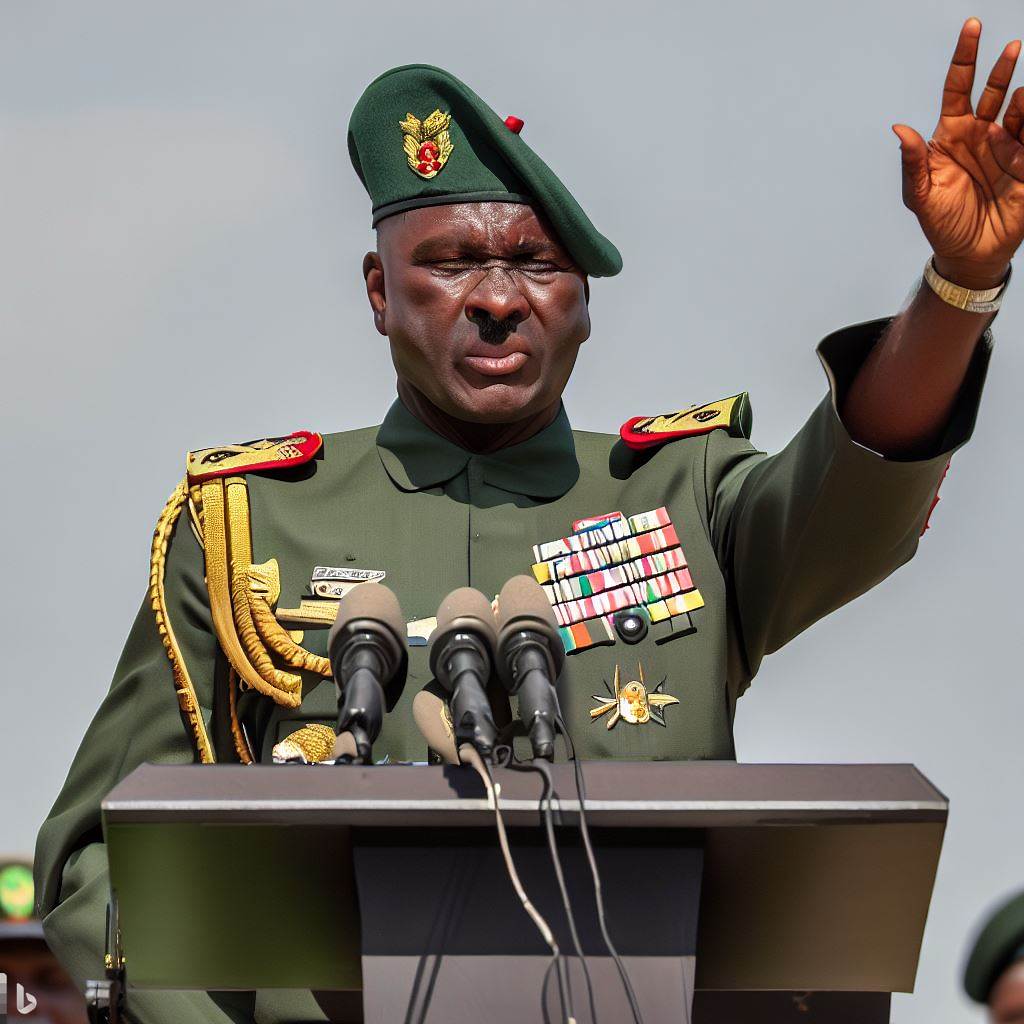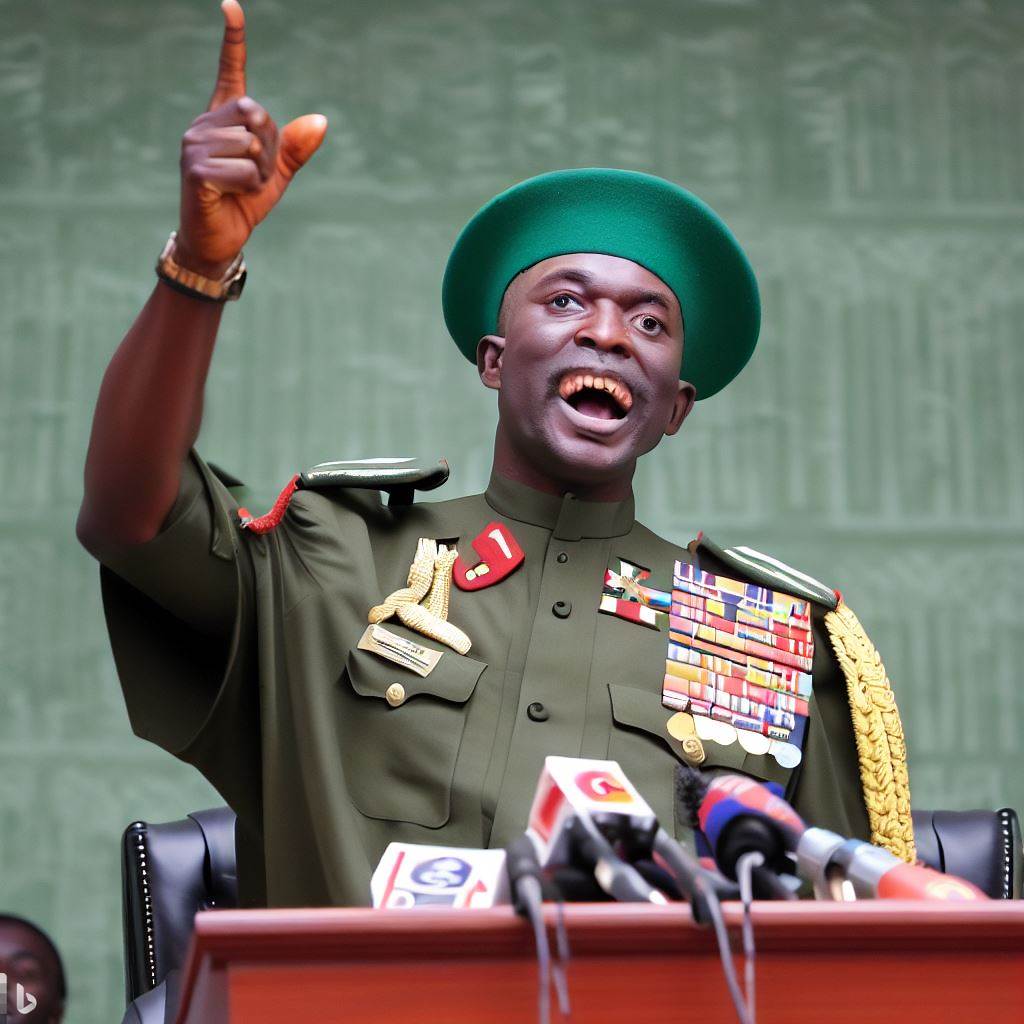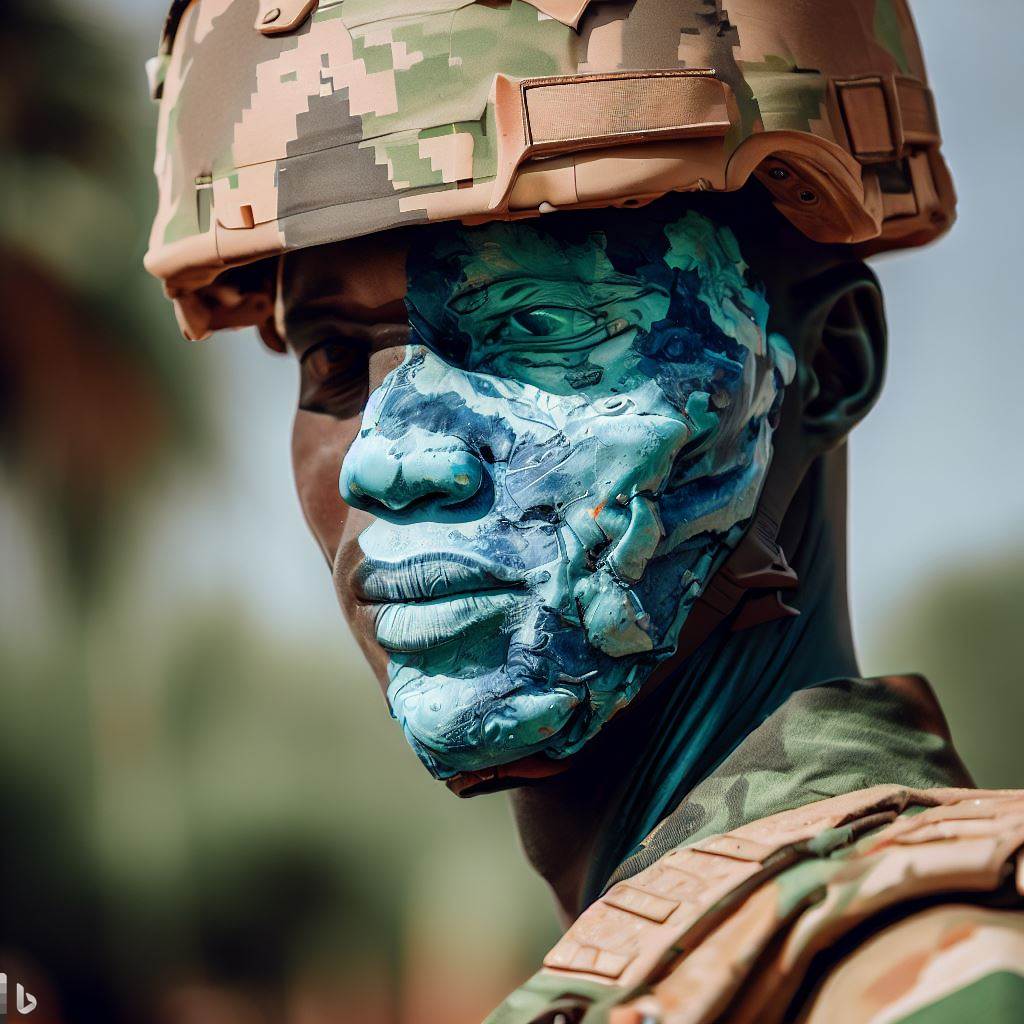Introduction
The Nigerian Military Profession presents an exciting and noble career path with diverse and challenging opportunities for dedicated individuals to serve their country.
It comprises the Nigerian Army, Nigerian Navy, and Nigerian Air Force, responsible for maintaining national defense and security.
The Nigerian Military Profession has a rich history dating back to Nigeria’s independence in 1960. It has evolved from a small, poorly equipped force to a robust and modern military with a highly trained and skilled workforce.
Over the years, the profession has faced numerous challenges, including political instability, civil unrest, and internal conflicts, but it has remained resolute in its commitment to serving the nation.
As a member of the Nigerian Military Profession, you will have the opportunity to make a difference in your country and the world.
You will be part of a team that safeguards national security, protects citizens, and contributes to global peacekeeping efforts.
Whether you join as an officer or a soldier, you will receive world-class training, develop unique skills, and gain invaluable experience.
Summarily, the Nigerian Military Profession is not just a job; it is a calling to serve your country with courage, honor, and commitment.
It is a profession that demands the highest level of discipline, dedication, and sacrifice, but in return, provides you with endless opportunities for personal and professional growth.
If you are passionate about serving your country and making a difference, then the Nigerian Military Profession may be the perfect career path for you.
Read: Nigerian Government and Military: A Comparative Study
Types of Career Opportunities in the Nigerian Military Profession
The Nigerian military is a large organization that provides employment opportunities for both local and foreign citizens.
There are three types of career opportunities in the Nigerian military profession, as discussed below.
Commissioned Officers
Commissioned officers are high-ranking military personnel who are responsible for overseeing the operations of soldiers and junior officers.
The President of Nigeria appoints commissioned officers, who must hold at least a Bachelor’s degree from a recognized institution.
Commissioned officers fall into two categories: Regular Combatants and Direct Short Service.
- The Regular Combatants are military personnel who have been in service for a significant period and have undergone training to qualify for this position.
They are responsible for command and control of military units, training of soldiers, and management of military equipment. - The Direct Short Service commission is for graduates who wish to join the military as officers for a short period.
They are commissioned for a period of 6 to 12 months and are responsible for providing support in non-combatant roles such as administration, finance, and logistics.
Non-Commissioned Officers
Military personnel who rise through the ranks become Non-Commissioned Officers (NCOs) with authority over enlisted personnel.
The President does not commission them, and they have lower authority than commissioned officers. NCOs fall into four categories: Warrant Officers, Master Warrant Officers, Staff Sergeants, and Sergeants.
- Warrant officers are the highest-ranking NCOs and they are responsible for providing leadership and technical advice to the commissioned officers.
They are the technical experts in their fields and are highly respected by their peers and subordinates. - Master Warrant Officers are responsible for managing and training Soldiers. They have a higher level of technical expertise than Staff Sergeants and Sergeants and are responsible for the welfare of enlisted personnel.
- Staff Sergeants and Sergeants are responsible for leading and managing small teams of soldiers. They are responsible for ensuring that their teams are properly trained and equipped for combat missions.
Civilian Staff
There are also civilian staff opportunities in the Nigeria military profession. Civilian staff members work in different capacities across several departments and are not involved in combat operations.
Some of the job opportunities available for civilians in the Nigeria military are medical personnel, finance officers, administrative assistants, IT professionals, engineers, and drivers amongst others.
- Medical personnel are responsible for providing medical care for military personnel and their families. They work in military hospitals and medical centers in different parts of the country.
- Finance officers are responsible for managing military budgets and ensuring that funds are allocated to the correct departments.
- Administrative assistants provide administrative support to military officers and NCOs. They are responsible for managing schedules, arranging meetings, and handling correspondence amongst other tasks.
- IT professionals are responsible for managing military computer networks and ensuring that electronic information is kept secure.
- Engineers and technicians are responsible for maintaining and repairing military equipment such as vehicles, aircraft, and weapons systems.
- Drivers are responsible for transportation of military personnel and equipment within and outside the country.
Basically, the Nigeria military profession provides numerous career opportunities for Nigerians and foreign nationals. Opportunities in both combat and non-combat roles are available to suit your interests and skills.
Read: Influential Leaders of the Nigerian Government: A Review
Requirements for Joining the Nigerian Military Profession
Joining the Nigerian Military is a noble decision, and while there are numerous benefits to be derived, it is not an easy feat to achieve. Here are some of the requirements for joining the Nigerian Military Profession:
Academic Qualifications
- Prospective candidates must possess a minimum of five credits in not more than two sittings in WASSCE, GCE, NECO, or NABTEB, including English and Mathematics.
- Applicants must also possess a degree or its equivalent from a recognized institution of higher learning for officers’ entry.
- Diploma, HND, or its equivalent from a recognized polytechnic is required for non-commissioned officers’ entry.
Age Requirements
- The age requirement for joining the Nigerian Navy and Nigerian Airforce is between 18 to 22 years.
- Applicants for the Nigerian Army must not be older than 28 years.
- Direct Short Service Commission (DSSC) applicants must be between 22 to 35 years.
- Candidates for Short Service Combatant Commission (SSC) must not be older than 28 years.
Physical Fitness
- Applicants must be physically fit and mentally sound to undertake the rigorous physical and mental training in the Nigerian Military.
- They must not have any physical disabilities, flat feet, or previous major orthopedic surgery.
- Candidates must also have the right BMI and appropriate height.
Medical Fitness
- Applicants must be free from any medical issues such as HIV, Hepatitis, Tuberculosis, and other medical conditions that may impair their ability to perform their duties effectively.
- Candidates must also undergo a medical examination, including eye and ear tests.
- They must be free from mental illness, have sound hearing, and excellent vision.
Psychological Fitness
- Prospective candidates must be emotionally and psychologically stable.
- They must not have any history of drug abuse, alcoholism, or any form of addiction.
- Candidates must also have a clean criminal record.
Joining the Nigerian Military is a laudable career choice, and while the requirements might seem daunting, potential candidates must put in the effort required to meet these prerequisites.
Selected candidates who meet the criteria can expect a fulfilling and rewarding career in the Nigerian Military. The profession offers various opportunities for professional growth and development.
Read: The Role of Women in the Nigerian Military

Benefits of Joining the Nigerian Military Profession
Joining the Nigerian Military Profession is a decision that comes with numerous benefits. Apart from the satisfaction of serving one’s country, there are professional advantages that are unique to military service.
Job security
In a country where unemployment is a significant issue, a career in the Nigerian Military profession guarantees job security.
The military is a stable and structured organization that ensures its personnel are gainfully employed. Members of the military have the psychological satisfaction of knowing their employment is secure.
Opportunity for advancement
A career in the Nigerian Military is a journey that allows individuals to advance their career in numerous ways.
The military profession provides opportunities for personal and professional development that can lead to promotions and appointments.
Those who successfully complete their training can progress up the ranks with hard work and dedication.
Retirement benefits
The Nigerian Military profession has an excellent retirement benefits scheme that allows retired personnel to live comfortably.
The benefits package includes monthly stipends, medical care, and housing. Also, the next-of-kin of deceased military personnel receive benefits which can ease the burden of losing a loved one.
Training and skill development
The Nigerian Military profession provides an outstanding opportunity for personnel to acquire valuable training and skills.
The military offers specialized training in various fields that are essential to national security, such as combat, counter-terrorism, and intelligence.
These skills are transferable to the civilian sector, making military personnel attractive to employers.
Patriotism and national service
The Nigerian Military Profession is an honorable way to serve one’s country.
A career in the military provides a sense of pride in one’s service to Nigeria and its citizens. It is a noble endeavor to put one’s life on the line for the greater good of the nation.
Military personnel have the opportunity to be an integral part of national security and contribute to the overall well-being of the country.
In essence, a career in the Nigerian Military Profession is rewarding, both professionally and personally.
The benefits are unmatched, providing job security, opportunities for advancement, retirement benefits, training and skill development, and the pride of serving one’s country.
If you are considering a career in the military, the Nigerian Military profession is a great choice.
Read: A Day in the Life of a Nigerian Military Officer
Challenges Faced by Professionals in the Nigerian Military
Being a part of the Nigerian military profession is not easy. There are several challenges that professionals in the field face on a daily basis.
These challenges can range from personal to professional, and they can often be quite daunting. Here are some of the main challenges that professionals in the Nigerian military face:
- Risk of danger and injury: One of the biggest challenges faced by professionals in the Nigerian military is the risk of danger and injury.
Military personnel are often in harm’s way while they are on duty, and this can result in physical injuries or even death. This risk is heightened during times of conflict or war. - Long deployments and absence from family: Another significant challenge faced by Nigerian military professionals is the long deployments and absence from family.
Military personnel are often required to be away from their families for long periods of time, sometimes up to several months or even years.
This can put a strain on family relationships and can make it difficult to maintain a healthy work-life balance. - Governance and leadership issues: The Nigerian military profession has also been plagued by governance and leadership issues.
This has led to a lack of funding and support for military personnel, which in turn has affected their morale and motivation.
Poor leadership has also led to cases of corruption and abuse of power, which further undermines the integrity of the profession.
These challenges can make it difficult for professionals in the Nigerian military to carry out their duties effectively.
However, there are steps being taken to address these challenges and improve the situation for military personnel.
Here are some of the measures being implemented:
- Improved training and equipment: The Nigerian military invests in personnel training and equipment to lower danger and injury risks.
They provide improved protective gear, weapons, and tactical training to reduce casualties. - Increased support for families: The military is also working on increasing support for the families of military personnel.
This includes providing counseling services and financial assistance to help families cope with the absence of their loved ones. - Efforts to address governance and leadership issues: The Nigerian government takes steps to address governance and leadership issues in the military.
They crack down on corruption and abuse of power, providing better funding and support for military personnel.
Professionals in the Nigerian military face challenges, but still find it rewarding and fulfilling. The career offers opportunities for personal growth, serving and protecting the country.
With government and societal support, the Nigerian military can thrive and attract talented individuals.
Read: Top 10 Highest Paying Professions in Nigeria: 2023 Edition
Conclusion
We have discussed the various career opportunities in the Nigerian Military Profession.
We highlighted the different branches and departments of the military and their respective job functions.
Also, we emphasized the benefits and opportunities that come with joining the Nigerian Military such as specialized training, career advancement, and job security.
Considering the current economic situation in Nigeria, the Nigerian Military Profession presents an attractive career option for young Nigerians.
As it offers a steady income, job security, and a sense of pride and fulfillment. Moreover, joining the military provides an opportunity to serve and protect one’s country while also developing essential leadership skills.
We encourage young Nigerians who are interested in joining the Nigerian Military to take advantage of the opportunities that exist and consider it as a viable career option.




